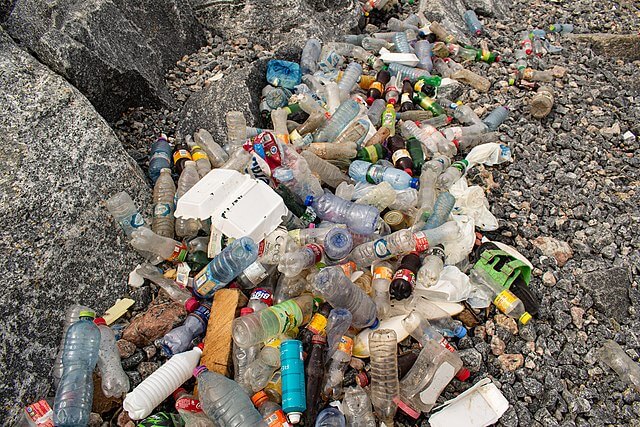
Scientists have engineered a “self-digesting plastic” to address pollution, offering a potential breakthrough in waste management.
Polyurethane, commonly found in items like phone cases and shoes, is notoriously difficult to recycle and typically ends up in landfills.
The innovative solution involves embedding spores of plastic-eating bacteria into the plastic. These spores remain inactive during the plastic’s useful life but activate in compost, where they begin to decompose the material.
There’s hope “we can mitigate plastic pollution in nature”, said researcher Han Sol Kim, of the University of California San Diego, La Jolla.
Additionally, the bacteria spores could enhance the plastic’s durability.
“Our process makes the materials more rugged, so it extends its useful lifetime,” said co-researcher, Jon Pokorski. “And then, when it’s done, we’re able to eliminate it from the environment, regardless of how it’s disposed.”
Currently, this self-digesting plastic is being developed in the lab, but it could become commercially available in a few years with the assistance of a manufacturer.
The bacteria used, Bacillus subtilis, is a common food additive and probiotic. However, it needs genetic modification to endure the high temperatures required for plastic production.
Despite this promising technology, some experts are skeptical. They argue that reducing plastic usage is a more effective strategy than creating biodegradable alternatives.
This debate was highlighted at the recent UN talks in Canada, which aimed to form a global agreement on combating plastic pollution.
Prof Steve Fletcher, director of the Revolution Plastics Institute at the University of Portsmouth, emphasised that the most impactful solution would be to enforce global legally binding reductions in plastic production.
He said: “Care must be taken with potential solutions of this sort, which could give the impression that we should worry less about plastic pollution because any plastic leaking into the environment will quickly, and ideally safely, degrade. Yet, for the vast majority of plastics, this is not the case.”
The study detailing this innovative plastic is published in the journal Nature Communications.
——————————————————————————
At Natural World Fund, we are passionate about rewilding the UK to stop the decline in our wildlife.
Donate now and join in the solution!

